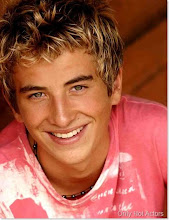On Tuesday, he may make history by becoming the first black man elected U.S. president.
Born in Hawaii to a white mother from Kansas and a black father from Kenya, Obama spent part of his childhood in Indonesia.
In the 2004 speech to the Democratic National Convention that vaulted him to rock-star status, he introduced himself to America as someone who hoped to bridge divisions, political and racial.
"In no other country on earth is my story even possible," Obama said, highlighting his biracial heritage as a metaphor for his call for unity.
"There is not a liberal America and a conservative America -- there is the United States of America," he said. "There is not a black America and a white America and Latino America and Asian America -- there's the United States of America."
The first-term Illinois senator, known for his stirring eloquence, now draws tens of thousands to his political rallies and is the author of two best-selling autobiographical books.
To his fans, he is an inspiring once-in-a-generation politician like President John F. Kennedy and his brother Robert, both assassinated in the 1960s.
To his critics, including Republican rival John McCain, Obama is little more than a celebrity with a thin resume, an eloquent speaker who preaches "naive" foreign policies and advocates "socialist" economic policies.
But if Obama, who commands a solid lead against McCain just four days before Election Day, fares as well as the polls predict, the Arizona senator and Vietnam War hero will become the latest in a long line of politicians who have underestimated Obama.
They include New York Sen. Hillary Clinton, the former first lady he defeated in the Democratic primary.
It was in Hawaii where Obama's mother, Ann Dunham, met his father, Barack Obama Sr., who was from a goat-herding family in Kenya and got a scholarship to study in the United States.
They married and she gave birth to her son when she was just 18. Two years later, Obama's father abandoned the family and his mother raised him with the help of his grandparents.
FOOD STAMPS AND TUTORING
Obama has recalled that his mother once had to rely on food stamps to get by when he was growing up. When the family moved to Indonesia for four years after she remarried, his mother used to regularly wake him at 4 a.m. to tutor him.His mother and his grandparents secured a scholarship that enabled Obama to attend the prestigious Punahou School in Honolulu. He later attended Columbia University and Harvard Law School.
Obama spent his early adult years as a community organizer in Chicago, where he lives with his wife, Michelle, and their two daughters, Malia, 10, and Sasha, 7.
He first gained national prominence in 1990 when he became the first black editor of the Harvard Law Review.
He later worked as a civil rights lawyer and taught constitutional law at the University of Chicago. He was elected to the Illinois senate in 1996 but suffered a crushing defeat in 2000 when he ran for the U.S. Congress against an incumbent Democrat.
Nevertheless, in 2004, he was elected to the U.S. Senate.
Using journals in which he used to jot down notes about his travels and experiences, Obama wrote "Dreams From My Father," which focused on his search for identity and his efforts to connect with his father's roots in Africa.
The 1995 memoir showcased the lyrical writing style that would later mark some of his best-known speeches. It also helped to shape Obama's political identity.
"The Audacity of Hope," published in 2006, outlined Obama's political philosophy, which he says was molded by the Midwestern values of his mother and grandparents. Brisk sales of the two books have made him a millionaire.
He has made a point of not running on his race in the presidential campaign, but his candidacy has galvanized many blacks, who constitute some 12 percent of the population.
The issue of race has reared its head at times, including during the Democratic primary contest against Hillary Clinton.
Obama came under attack after videotapes surfaced showing his former pastor, the Rev. Jeremiah Wright, making racially inflammatory statements about whites.
Addressing the controversy, Obama gave a widely praised speech in March calling for racial healing.
As Clinton had during the primary, McCain has tried to use Obama's reputation for lofty speeches against him, suggesting he is all rhetoric and no substance.
But the worst financial crisis since the Great Depression has led to a surge in the polls for Obama, who won high marks from many voters for his response to the upheaval. He has benefited from anger at President George W. Bush's economic policies.




No comments:
Post a Comment